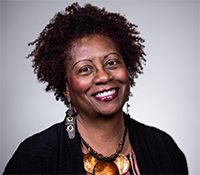STEPPING OUTSIDE OF YOUR COMFORT ZONE – YOU WILL SURVIVE!
 Last month I vacationed with my family in Costa Rica. Being fairly fluent in Spanish, I wasn’t concerned about a language barrier. The friendly Costa Rican people made me feel welcomed in their country. Having a guide for our planned activities was comforting; I had already decided that zip-lining across the rainforest was not something I would do. But on the fourth day of my ten day vacation, I found myself participating in not one, but two activities that took me well past the boundaries of my comfort zone.
Last month I vacationed with my family in Costa Rica. Being fairly fluent in Spanish, I wasn’t concerned about a language barrier. The friendly Costa Rican people made me feel welcomed in their country. Having a guide for our planned activities was comforting; I had already decided that zip-lining across the rainforest was not something I would do. But on the fourth day of my ten day vacation, I found myself participating in not one, but two activities that took me well past the boundaries of my comfort zone.
The vertical climb of the horseback ride on a horse named Palmino was a challenge, but I persevered and patted myself on the back at its completion. Little did I know that would be the easy part. I soon found myself walking across a hanging bridge near the Volcano Miravalles en route to see the waterfalls. I got halfway across and seriously questioned whether I would be able to make it all the way – I had never been so paralyzed with fear! But I continued to the other side and after catching my breath (actually starting to breathe again!) I walked back across the bridge without stopping. I felt accomplished but emotionally exhausted!
I decided to share this personal story because it reminded me of what I tell students all the time – step outside of your comfort zone. Doing so can look different from person to person. For a high school freshman, it may mean joining school clubs to explore new interests like debate, yearbook or culturally-focused clubs. Perhaps you’re ready to take singing in the shower to the next level so you decide to join choir. It could also mean challenging yourself with Honors and AP courses. And for seniors, applying to and/or attending colleges and universities outside of California could signal a big leap for you. It continues throughout college, with study abroad programs, community service-based spring break activities, conversing with your professors about their research, and exploring more student organizations.
 Yes, stepping outside of one’s comfort zone is truly a life skill. No matter how big or small the steps are, the most important thing is to be willing to push yourself beyond the limits you believe you have. I am certain this attitude is what pushed me to finish my ride on Palmino and make it across – and back across – that bridge. I stepped far out of my comfort zone, and I survived. You can, too! Remember The Journey Begins with You …Good luck!
Yes, stepping outside of one’s comfort zone is truly a life skill. No matter how big or small the steps are, the most important thing is to be willing to push yourself beyond the limits you believe you have. I am certain this attitude is what pushed me to finish my ride on Palmino and make it across – and back across – that bridge. I stepped far out of my comfort zone, and I survived. You can, too! Remember The Journey Begins with You …Good luck!
Antoinette Battiste is an Independent Educational Consultant and 20-year resident of Evergreen. She is an active volunteer with many community organizations in Silicon Valley, including Alpha Kappa Alpha Sorority, Inc., Santa Clara County Alliance of Black Educators, Silicon Valley Black Chamber of Commerce and the African American Community Services Agency.

